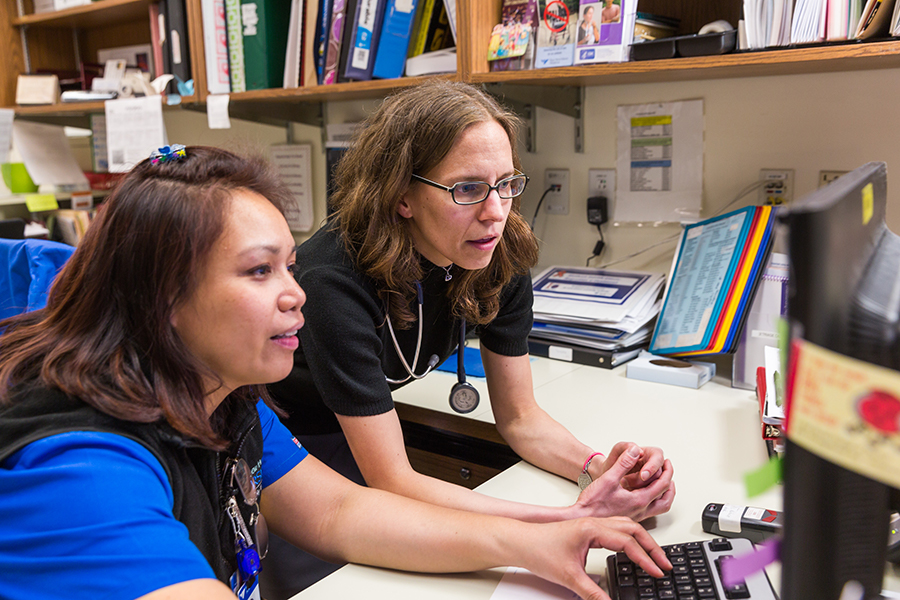Opioids Increase the Risk of Pneumonia

E. Jennifer Edelman, M.D., M.H.S., and Maricar Pendon, RN, of Yale University School of Medicine, confer about a patient. (Yale University Photo/Robert Lisak)
March 18, 2019
Opioids are often the only kind of medication that works for severe pain, but they can lead to addiction. Now, new NCATS-supported research suggests another danger associated with opioids: They increase the risk of pneumonia that is severe enough to warrant hospitalization. The research, led by E. Jennifer Edelman, M.D., M.H.S., from the Yale School of Medicine, was published in JAMA Internal Medicine.
Edelman had read about research showing that opioids could suppress the immune system in the lab, and she wanted to know whether that was true in the community too. She was particularly interested in people with HIV, many of whom take opioids for pain. She and her colleagues turned to the Veterans Aging Cohort Study, a long-term study of people with and without HIV who receive care at U.S. Department of Veterans Affairs hospitals. The team compared more than 4,000 people who were hospitalized for pneumonia with more than 20,000 who were not, analyzing data that included opioid use. The work was supported in part by the Yale Center for Clinical Investigation, the Clinical and Translational Science Awards (CTSA) Program hub at Yale. The National Institute on Drug Abuse and the National Institute on Alcohol Abuse and Alcoholism also supported the research.
People who received prescription opioids had a higher risk of pneumonia, and risk increased with higher doses of opioids. Research has suggested that some opioids — including codeine, morphine and fentanyl — suppress immune cells more than others; people who took those opioids were more likely to get pneumonia than people who took less immune-suppressing opioids such as oxycodone. People with HIV appeared to be more susceptible to pneumonia.
“Fortunately, health care professionals are paying a lot more attention to careful and safer opioid-prescribing practices,” Edelman said. She said that her research suggests that people taking opioids should also get an annual flu shot and, if relevant, the pneumonia vaccine; should never smoke; and should quickly seek medical care if they have symptoms of pneumonia.


